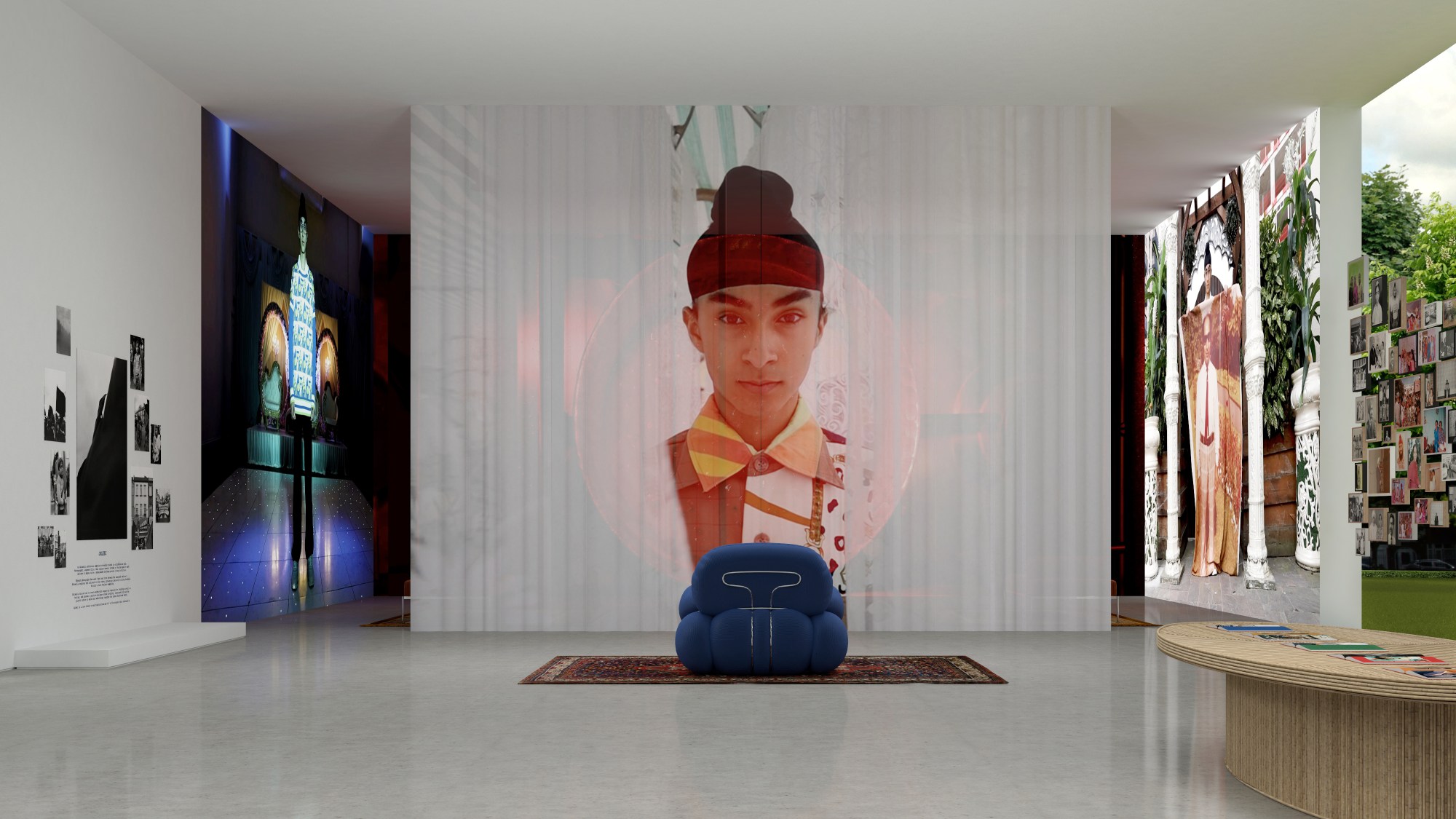At 1:15pm BST today, Priya Ahluwalia’s exhibition Jalebi will open in a vast, open-flanked white-cube space. Images shot by Laurence Ellis from the photography book of the same name — a poignant ode to the Punjabi community of Southall, a west London suburb — are printed on a dividing curtain, mounted on pristine white walls, and even on wrap-around windows that look out to the surrounding forest. The pictures seem to float against the gently swaying leaves.
To say that the curation of the space is impressive would be a gross understatement. But still, it’s not quite the presentational context that the London-based artist and fashion designer had in mind embarking on the project 18 months ago. That’s in large part because the show described above is an immaculately 3D-rendered virtual space, custom-built by Chameleon Visual, and shown as part of London Fashion Week’s digital platform. A self-professed fan of more ‘analogue’ ways of working — a mindset mirrored in the attention to hand-making, patchwork and craft techniques you’ll find in her intricately wrought garments — she had originally envisaged an intimate exhibition in a physical space in the city centre.
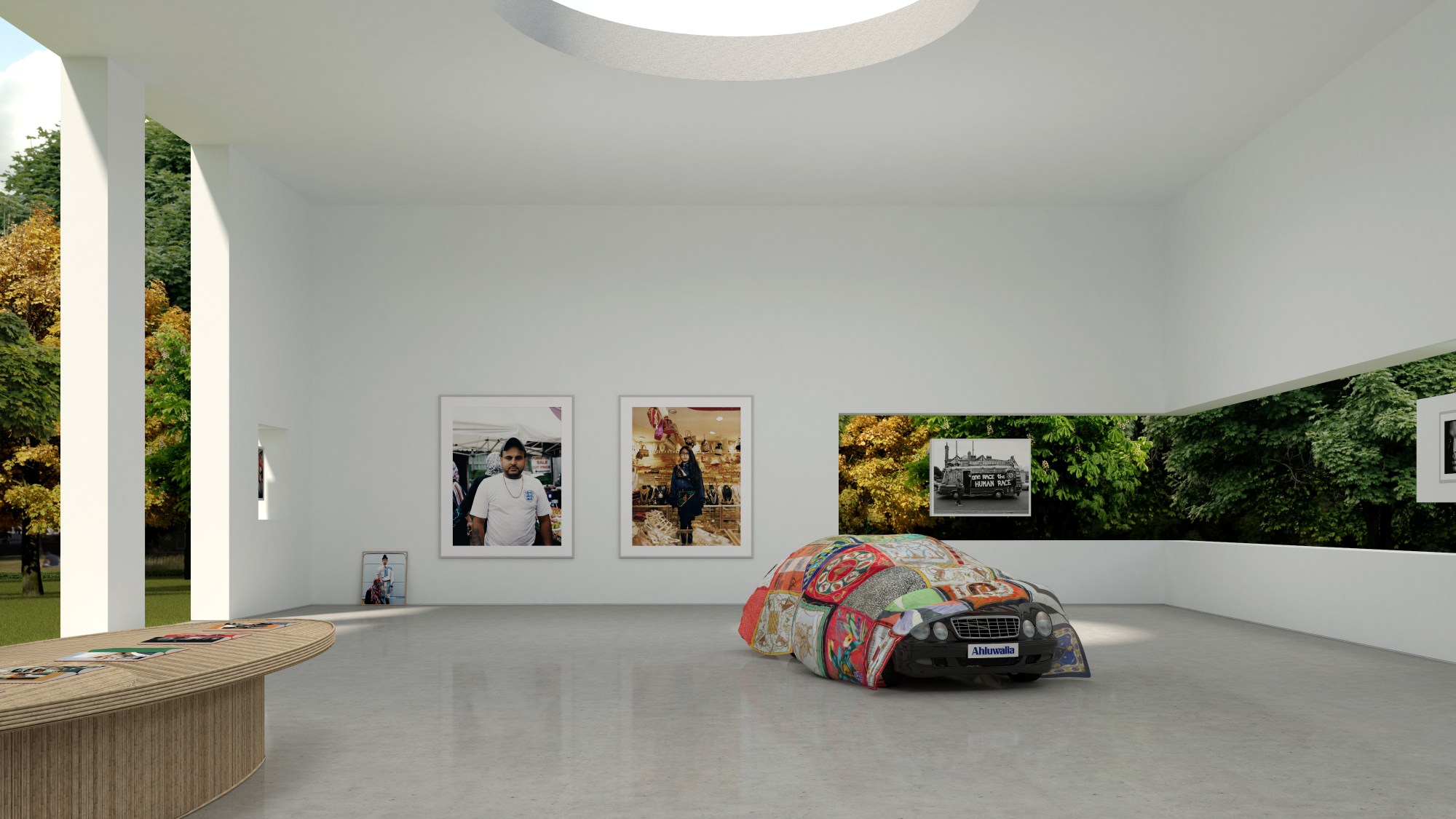
Of course, the onset of the pandemic meant a pivot to the virtual world. Though adjusting to digital methods has certainly presented unique challenges, it has also opened up opportunities unimaginable IRL, particularly where broadening access to her work is concerned. “Obviously, I don’t like the idea of never getting on a plane again — I’ve got places to go and people to see! But what I do like about this format is that it democratises things,” she says. “I can send a link to my brother in New York, my dad in Nigeria, my cousins in India… hardly any of them would’ve been able to come to an exhibition in London. Since the pandemic began, not being able to see people and connect with people is something I’ve found so difficult. So it was so important for me to be able to communicate this project around the world.”
While the exhibition itself may benefit from this newfound global scope, its subject matter is of a decidedly more personal, local focus: Southall’s Punjabi community. Flitting between documentary and fantastically stylised images that draw upon Priya’s own memories, the result is an homage to the life that pulses through streets she’s known since childhood. Woven throughout are family photos, as well as extracts from an interview Priya conducted with her Nana about the Ahluwalia family experience between India and Britain.
To learn more about the project, we caught up with Priya ahead of the opening of today’s show.
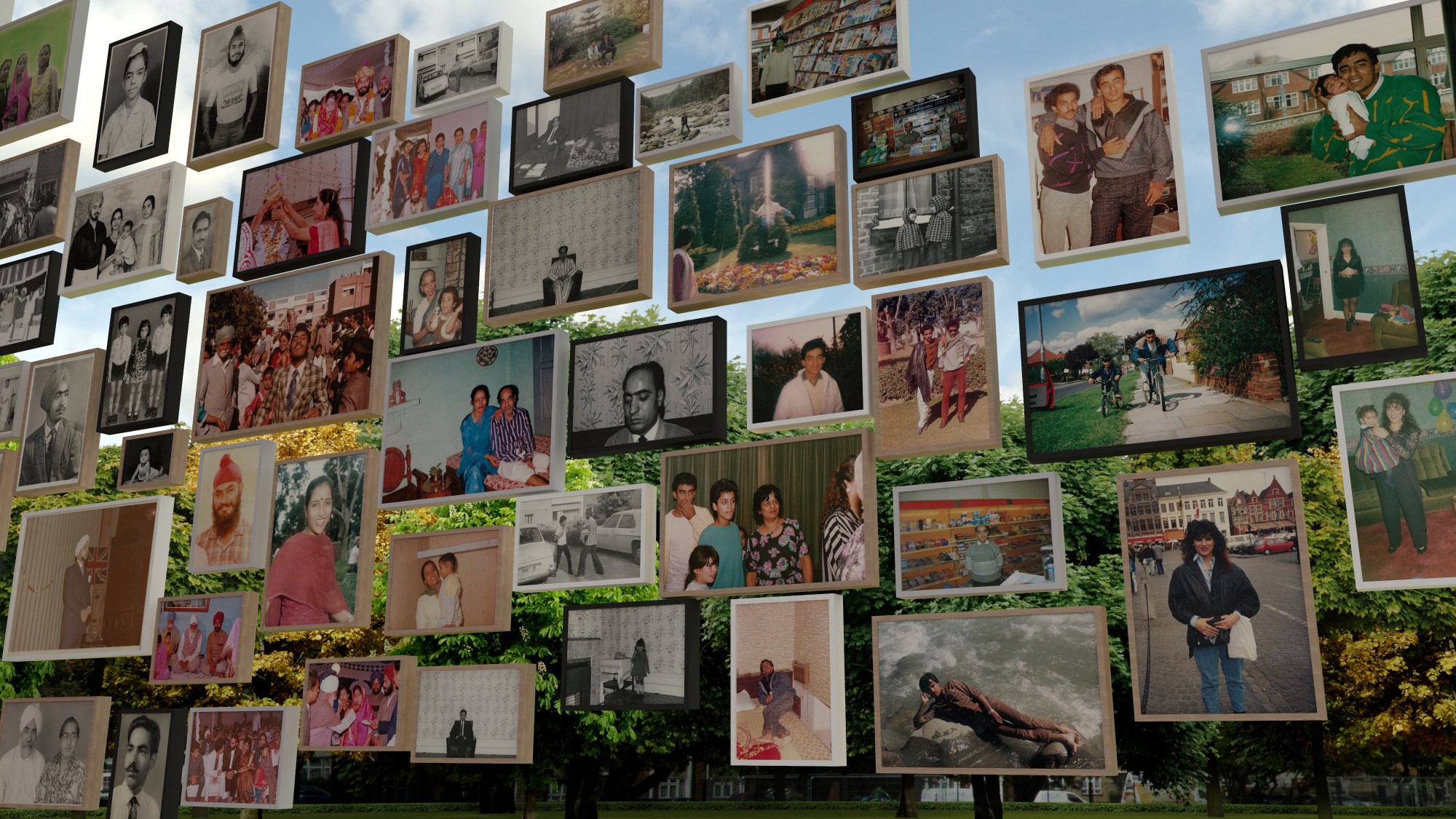
What’s the meaning behind the book’s title, Jalebi?
It’s my favourite Indian sweet! The book’s really heavily based around Southall, and I grew up visiting there all the time. It’s the heart of the UK’s Punjabi community, and that was the first thing I bought whenever I went there — fresh jalebi. It’s a dessert of deep fried orange batter covered in syrup. It’s so bad for you, but it’s so delicious, and it drips all over you. I remember sucking the syrup out of my sleeve when I was a kid.
Could you tell us a little more about your relationship to Southall?
I used to visit Southall as a child with my family on my Punjabi side to get supplies and eat proper Punjabi food — to get that authentic experience. Back then our trips there were really out of practical necessity, whereas now I look at Southall from a more emotional perspective. That only came about as I got older and mentioned it to my white friends, and they’d either never heard of it or never been. I thought that was really interesting. We’d grown up in the same city, living pretty close to each other and yet we hadn’t been to the same places.
It’s such a fun and vibrant place, but the reason I think Southall’s really important is that it’s so specific to the UK, and to London in particular. It’s the British context it exists in that makes it the nuanced place that it is. And as a designer and an artist, all those nuances that arise when a community from one side of the world joins another are things I’ve always been aware of.
How did Laurence Ellis get involved with the project? And why did you think he was a particularly good fit for this?
Well, we’re both artists that step beyond our respective realms of fashion and photography, and this project spoke to both of our desires to work with communities. When we first started talking about it, it was just after the Windrush scandal, and everything felt so hostile to me. For the first time in a few years, I really thought about the fact that I’m the child of immigrants, so I just wanted to celebrate areas that people never do, highlight the cultures that exist there and show how brilliant they are. He immediately said how great he thought the project was.
What I love about working with Laurence is that he really doesn’t see the boundaries of anything — if he has an idea for something, he really does go to the nth degree to make it happen, and I find that really motivating. He’s also from Hounslow, which is very close to Southall. He’s always loved it as well, but we have different experiences of the area, and look at it from different perspectives.
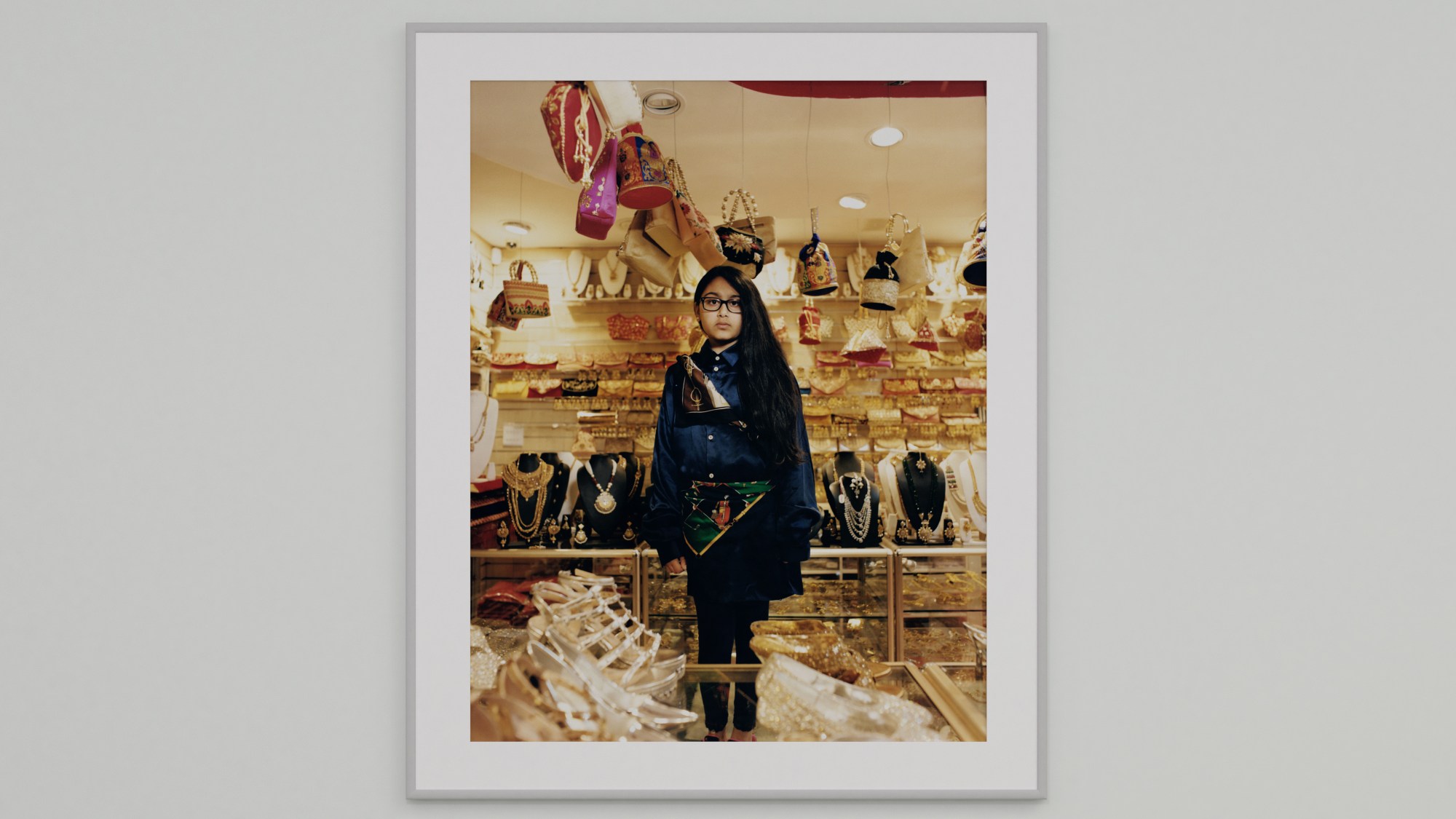
Certain images have a documentary feel to them. Then there are the family photos, and then some more typical fashion imagery. What made you want to work across a range of photographic genres?
I was really trying to highlight that all the inspiration for me looking at these different areas and cultures comes from my family — they’re the reason I do it. That’s why the family photos are so extensive and so important. There’s a picture of my mum when she was a kid, and that’s because she’s the most important person to me. Also, we didn’t want to make a lookbook or a fashion campaign, but we wanted to make imagery that alluded to fashion.
With the documentary photos, I wanted there to introduce an element of realism in it. We have the pictures of Sikh men wearing their turbans, for example, and sometimes it was just because they looked so beautiful as they were. And then we included images from an anti-racism protest commemorating Blair Peach, who was killed by police in Southall in 1979. It was really important to highlight that, while this book is about celebrating the beauty and nuances of diversity and having mixed cultures, it’s not always easy and it’s not always fair. The things that happen to people who move here simply wanting a better life is just horrendous and I can’t bear it sometimes. My race affects me and what I do nearly every day I step outside my house. That’s why the interview with my nan that runs through the book is really important as well — she speaks from a solely Punjabi perspective, whereas I’m speaking from a mixed perspective. But she says that outside of her house, she’s othered, and seen as someone who isn’t from here. It was really about showing that, yes, I think the communities you see in places like Southall are beautiful and amazing, but let’s take a second to think about how many people have suffered to create them.
In the socio-political climate into which Jalebi is now being released, it’s relevance is enhanced. What do you hope your audience is able to find in the book at this particular time?
Beyond the statistics and the deaths caused by crooked police officers, I want people to take home the fact that we’re talking about human beings with families and stories and emotions and lives — and they’re all being affected. I want people to see a sense of community, and realise how important we all are to each other to survive on this planet, how we’re all part of an ecosystem. I want people to remember that, and to have emotion when we’re talking about these different aspects of society. Yes, we’re tackling the system right now, which is really important, but I think that for a lot of people to understand what’s at stake, they need to see the human reality of just how special these communities really are.
Jalebi opens today at 13:15 here. All profits from the sales of Jalebi and photographic prints will be donated to the Stephen Lawrence Charitable Trust and Southall Black Sisters. Jalebi is available to purchase here.
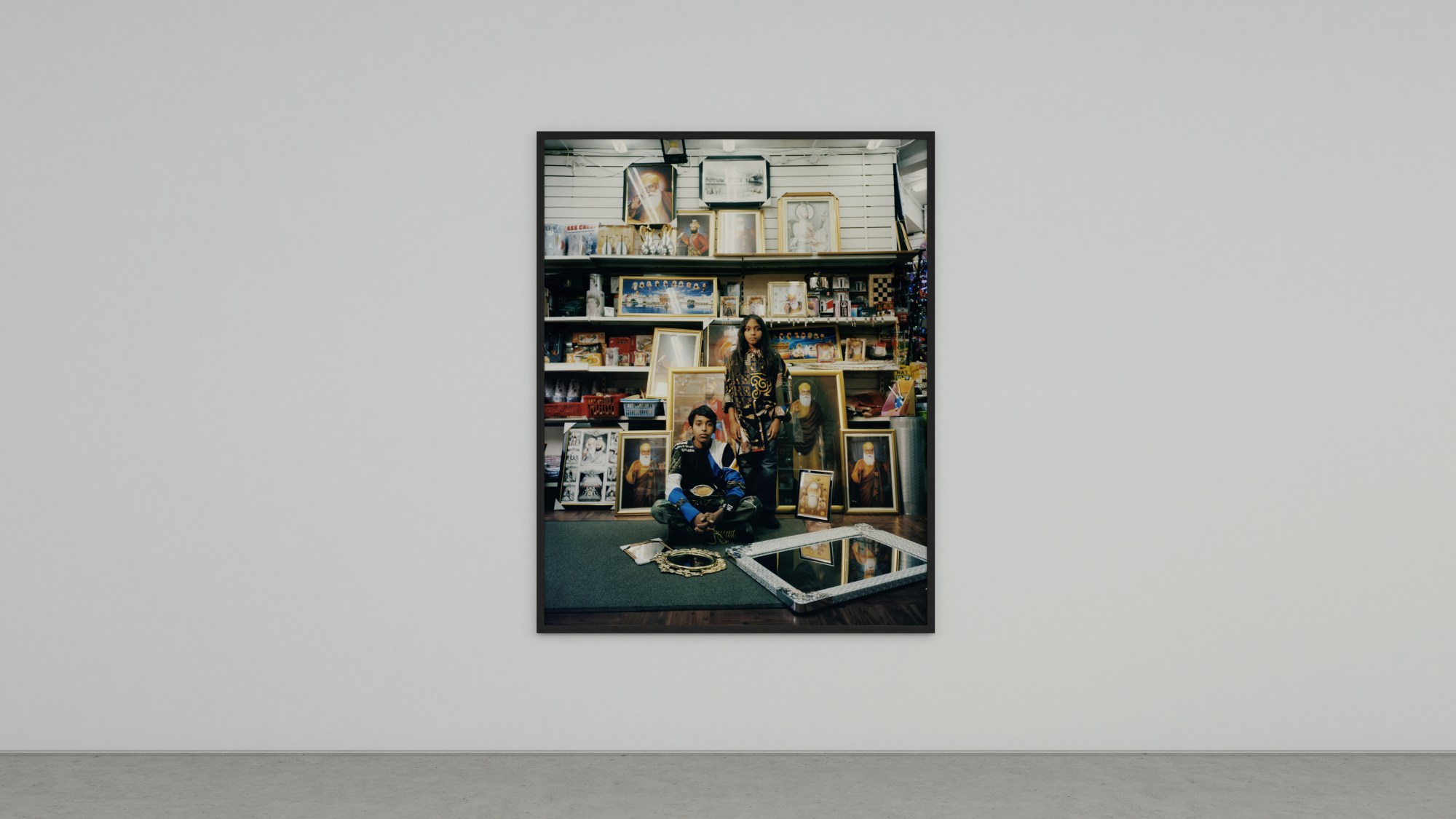
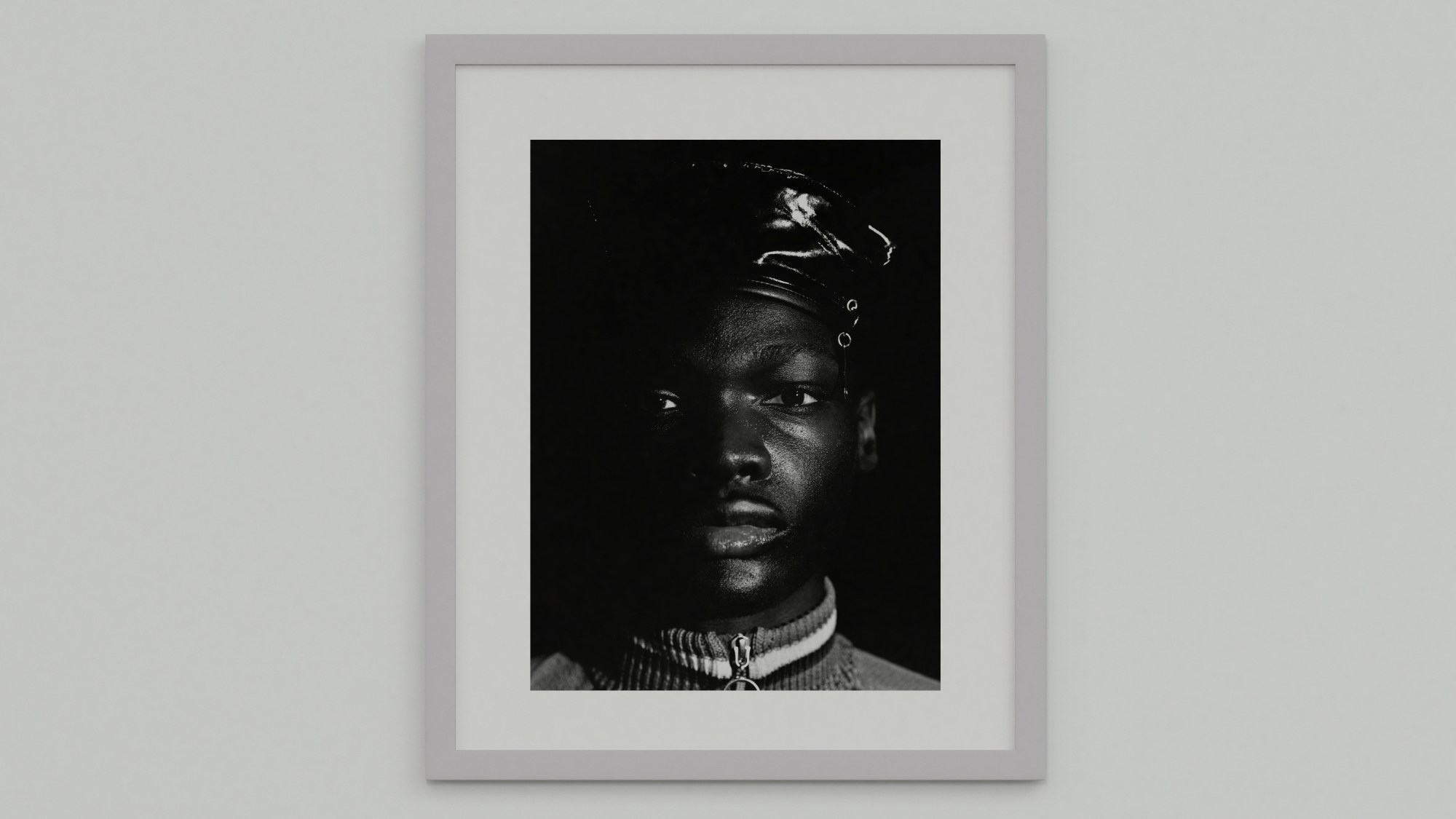

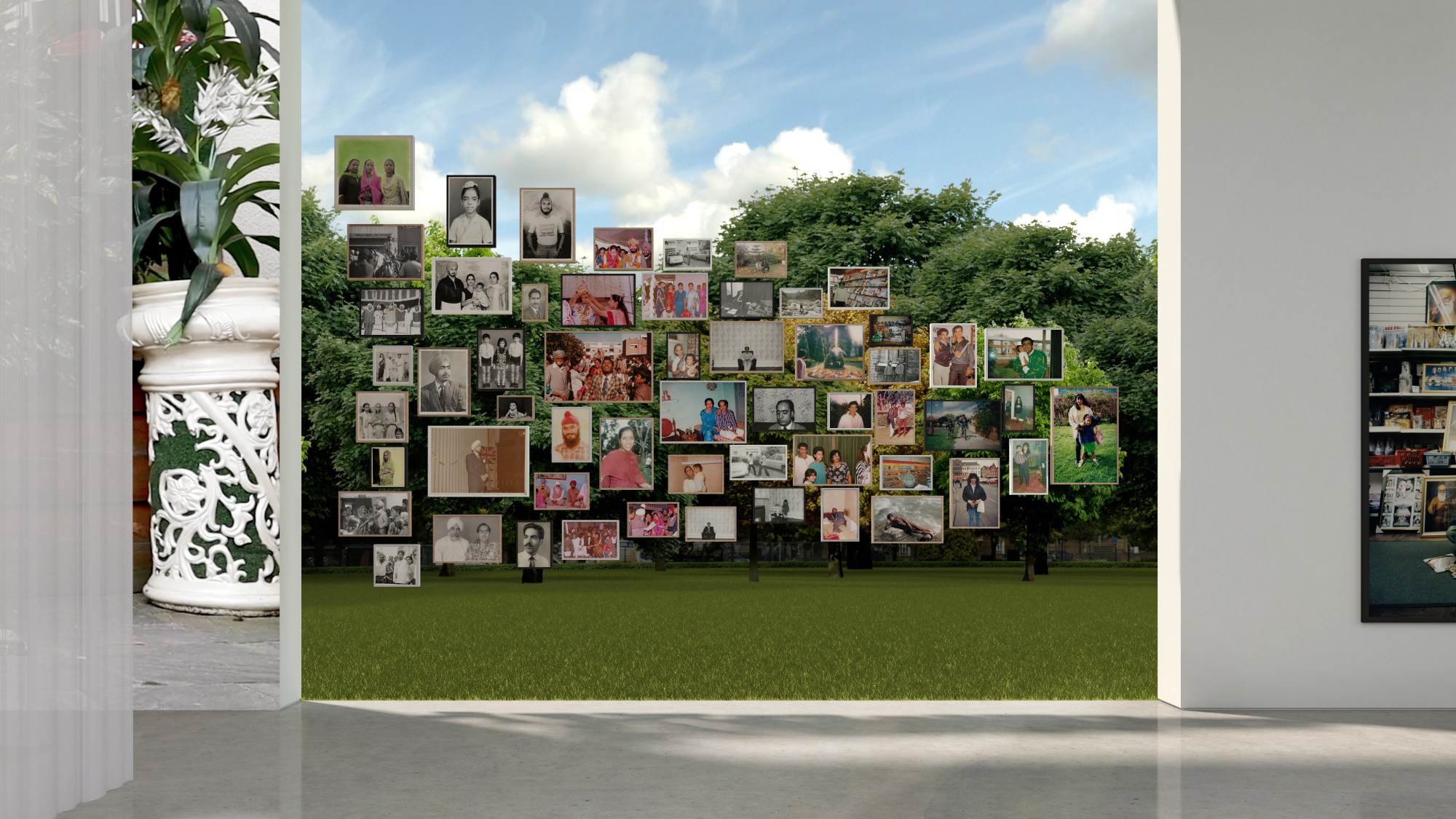
Credits
Photography Laurence Ellis
Art Direction Jaime Perlman
Styling Riccardo Maria Chiacchio
Casting Troy Casting
Digital Exhibition Space Chameleon Visual
